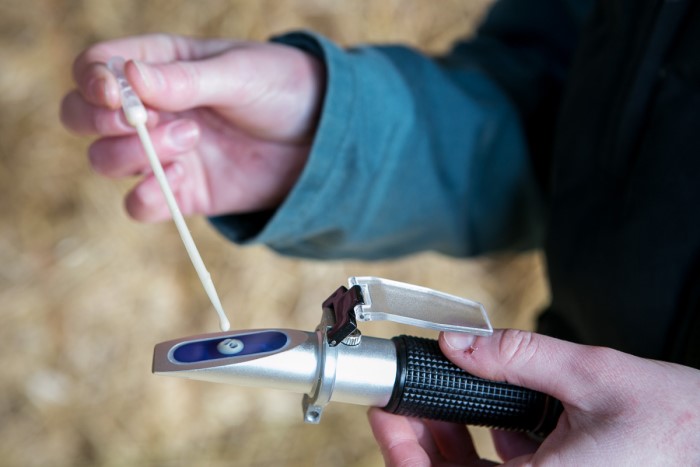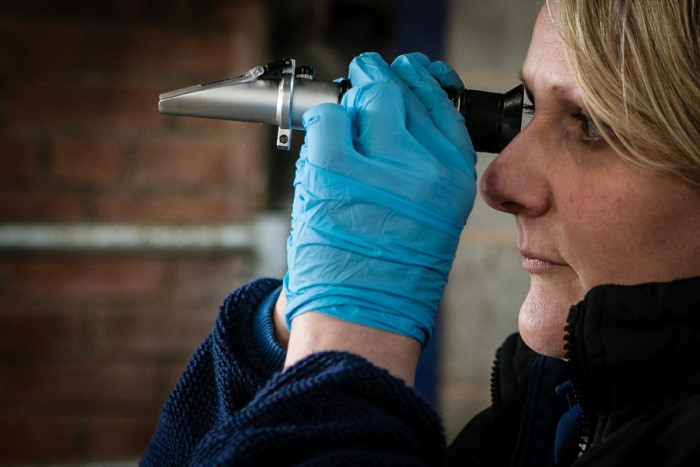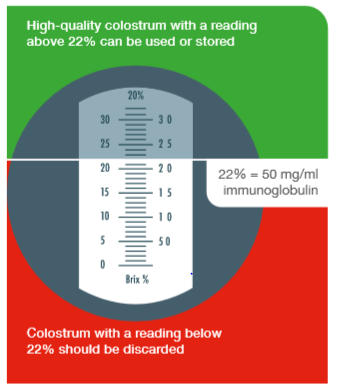- Home
- Knowledge library
- Using a Brix refractometer
Using a Brix refractometer
It is important to test colostrum quality every time you collect it. The results help you decide whether the colostrum is good enough to be fed, stored, or needs to be discarded. You can use a Brix refractometer to do this.
Calibrate refractometers before each use and make sure they are free from visual dirt and contaminants such as manure. Also check for any cracks or breaks in the glass. You will need:
- Clean refractometer 0–32% scale
- Distilled water
- Clean cloth
- Sterilised jug
- Colostrum at room temperature
How to use a Brix refractometer
Follow our step-by-step advice on using a Brix refractometer to test the quality of colostrum from your dairy cows.
1. Calibrate the refractometer before every use. Put 2–3 drops of distilled water on the glass surface, as shown in the photo below.
How to use a Brix refractometer

2. Lower the cover over the sample so the water spreads across the entire surface without any air bubbles or dry spots.
3. Wait 15 seconds before taking a calibration reading – this allows the sample to adjust to room temperature.
4. Hold the refractometer up to natural light while looking down the eyepiece. Avoid fluorescent light sources.
5. As you look down the eyepiece (shown in the photo below), you will see a circular field with graduations down the centre. The scale should read zero where the light and dark areas meet. If not, adjust using the calibration screw.

6. Wipe the surface clean with a clean, soft cloth.
7. Once dry, place a couple of drops of colostrum onto the glass surface and repeat the process.
8. Take a quality reading for the colostrum.
9. When you are happy with the reading, make sure you clean the slide and glass ready for next time.
10. High-quality colostrum with a reading above 22% can be used or stored. Colostrum with a reading below 22% should be discarded.

Useful links
Testing colostrum
If you would like to order a hard copy of the Calf management guide, please contact publications@ahdb.org.uk or call 0247 799 0069.

